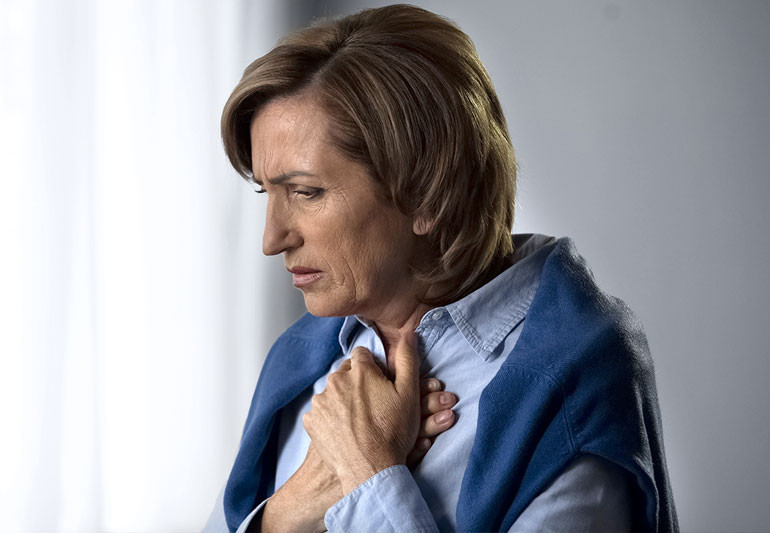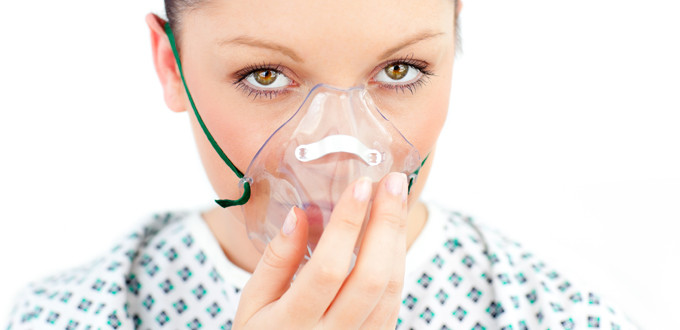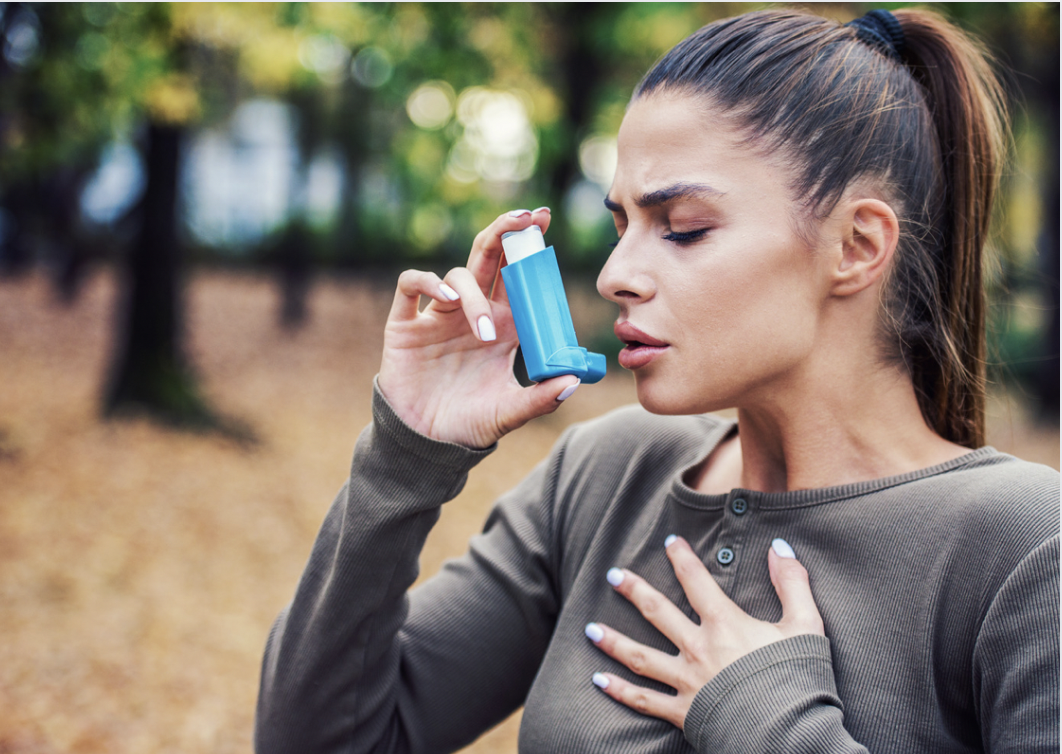Definisi
Kor pulmonale merupakan suatu kondisi terjadinya perubahan fungsi dan struktur pada bilik kanan jantung, yang berfungsi untuk memompa darah ke paru-paru. Kata “kor” berasal dari Bahasa Latin yang berarti jantung, sedangkan kata “pulmonale” berarti paru-paru, sehingga kor pulmonale menggambarkan suatu komplikasi pada jantung akibat adanya penyakit paru yang mendasarinya. Kondisi ini juga dikenal sebagai gagal jantung sisi kanan karena terjadi pada bilik kanan jantung Anda. Kor pulmonale menyebabkan bilik kanan jantung membesar dan kemampuan memompa darah menjadi kurang efektif. Seiring berjalannya penyakit, keadaan ini akan menimbulkan gagal jantung.
Kor pulmonale dapat bersifat akut (terjadi dalam waktu yang singkat) maupun kronis (berlangsung dalam jangka waktu yang panjang, bulan atau tahun). Kor pulmonale kronis biasanya terjadi akibat pembesaran dan pelebaran bilik kanan jantung selama berbulan-bulan hingga bertahun-tahun, yang pada akhirnya menyebabkan gangguan fungsi jantung dan berpotensi menimbulkan gagal jantung.
Penyebab
Dalam keadaan normal, paru akan bergantung pada jantung untuk memompa darah dari tubuh ke paru. Jika terjadi peningkatan tekanan pada pembuluh nadi (arteri) paru, maka dapat menimbulkan beban pada bilik kanan jantung. Beban ini timbul sebagai kompensasi dari jantung untuk mengatasi tekanan tinggi di paru, agar bilik dapat memompa masuk darah ke dalamnya. Peningkatan tekanan ini pada akhirnya mengakibatkan kor pulmonale, dan pengantaran darah ke paru menjadi tidak efektif. Sehingga, terjadi penurunan transportasi oksigen ke seluruh tubuh.
Beberapa kondisi yang dapat menyebabkan peningkatan tekanan pada pembuluh darah paru-paru sehingga menimbulkan kor pulmonale kronis antara lain:
1. Penyakit Paru Obstruktif Kronis (PPOK)
Penyakit paru di mana saluran paru menjadi meradang dalam waktu yang lama. Kondisi ini merupakan penyebab paling sering dari kor pulmonale kronis. PPOK sering disebabkan oleh kebiasaan merokok, terpapar lingkungan berasap, atau ventilasi yang buruk.
2. Penyakit Paru Interstisial
Kondisi ini melibatkan terjadinya jaringan parut atau peradangan jaringan di sekitar kantung udara paru (alveolus), pembuluh darah, dan saluran paru-paru. Efek penyakit paru interstitial pada paru dapat membuat paru menjadi kaku dan sulit mengembang, sehingga penderitanya menjadi susah bernapas.
3. Hipertensi Arteri Pulmoner Idiopatik
Peningkatan tekanan pada pembuluh darah arteri paru yang penyebabnya tidak diketahui.
4. Obstructive Sleep Apnea
Periode henti napas (apnea) yang terjadi akibat otot-otot tenggorokan Anda terus-menerus berelaksasi dan kemudian menyumbat jalan napas Anda ketika sedang tidur. Kondisi ini dapat menyebabkan masalah pada jantung dan kelelahan kronis jika terus berulang.
5. Kifoskoliosis
Dikenal juga dengan skoliosis dewasa, merupakan kondisi di mana tulang belakang Anda tidak memiliki kelengkungan yang alami. Penyebabnya bisa terkait suatu penyakit, bawaan lahir, atau terkait gangguan otot.
6. Skleroderma
Sekelompok penyakit yang melibatkan pengerasan dan pengencangan pada kulit dan jaringan ikat. Penyebab dan gejalanya sangat bervariasi tergantung pada jenis skleroderma yang Anda miliki. Pada paru, kondisi ini bisa melukai dan merusak fungsi paru. Penyebabnya bisa genetik, lingkungan, atau reaksi kekebalan tubuh.
7. Fibrosis Kistik
Suatu kelainan genetik yang menyebabkan infeksi paru yang konsisten dan seiring waktu akan menurunkan kemampuan Anda untuk bernapas.
8. Sindrom Hipoventilasi Obesitas
Kondisi ini adalah gangguan yang dialami oleh beberapa penderita obesitas ketika terdapat terlalu sedikit kadar oksigen dan terlalu banyak kadar karbon dioksida dalam darah mereka.
Faktor Risiko
Risiko terjadinya kor pulmonale kronis akan meningkat jika Anda memiliki faktor risiko atau penyakit paru yang mendasarinya, seperti:
- Penyakit Paru Obstruktif Kronis (PPOK), terutama akibat kebiasaan merokok
- Paparan asap di rumah atau lingkungan kerja
- Obesitas
- Penyakit paru interstisial
- Sleep apnea
- Skleroderma
- Fibrosis kistik
Gejala
Gejala awal kor pulmonale kronis biasanya cukup sulit untuk diketahui karena penyakit paru penyebabnya juga menimbulkan gejala, dan beberapa di antara penyakit penyebab tersebut bisa muncul dengan gejala serupa. Gejala kor pulmonale seringkali timbul saat gangguan paru yang mendasarinya menjadi semakin memburuk. Gejala umum dari kor pulmonale kronis meliputi:
- Terdengar suara mengi saat bernapas
- Batuk
- Sulit bernapas saat berolahraga atau bahkan aktivitas fisik yang sedikit berat (seperti berjalan menaiki tangga)
- Kelelahan umum
- Sesak napas
- Pusing
- Pembengkakan pada kaki dan/atau pergelangan kaki
Selain itu, terdapat gejala-gejala yang menandakan suatu kegawatdaruratan dan membutuhkan pertolongan segera, seperti:
- Sesak napas hebat saat istirahat
- Pembesaran pembuluh darah balik (vena) di leher
- Nyeri dada
- Sinkop (hilang kesadaran, pingsan)
- Pembengkakan di perut
- Perubahan warna kebiruan pada kulit, dasar kuku, bibir, atau lidah
Diagnosis
Dalam mendiagnosis kor pulmonale kronis, dokter akan mulai dengan melakukan wawancara dengan Anda. Dokter akan menanyakan gejala-gejala yang Anda alami, sudah berapa lama gejala dialami, serta riwayat penyakit yang pernah diderita sebelumnya, terutama riwayat penyakit paru dan jantung sebelumnya. Selanjutnya, dokter akan melakukan pemeriksaan fisik. Dokter akan memeriksa tanda-tanda penumpukan cairan di kaki dan tubuh, detak jantung dan bunyi napas yang tidak normal, dan pelebaran pada pembuluh darah vena di leher.
Dokter juga dapat menyarankan beberapa pemeriksaan penunjang termasuk:
- Pemeriksaan rontgent, seperti X-ray pada dada untuk mendeteksi adanya pembekuan darah
- Elektrokardiogram (EKG), untuk merekam aktivitas listrik di jantung Anda
- Ekokardiografi Doppler, untuk memeriksa kecepatan aliran darah Anda dan memberikan gambaran visual struktur jantung Anda
- Computed Tomography (CT) Scan
- Magnetic Resonance Imaging (MRI)
- Kateterisasi jantung pada sisi kanan jantung dengan menggunakan sebuah tabung kecil dan fleksibel yang dimasukkan ke dalam pembuluh darah di lengan, selangkangan, atau leher Anda dan digerakkan menuju pembuluh darah di jantung Anda
Tata Laksana
Tata laksana utama pada kor pulmonale kronis adalah dengan mengobati penyebab yang mendasarinya, seperti hipertensi pulmoner atau PPOK. Tujuan tata laksana akan berfokus untuk meningkatkan oksigenasi dan fungsi bilik jantung kanan. Beberapa tata laksana mungkin termasuk:
- Obat-obatan yang dapat membantu menurunkan tekanan darah dan mendorong aliran oksigen ke paru
- Obat pengencer darah untuk membantu mencegah pembekuan darah
- Obat diuretik yaitu jenis obat untuk meningkatkan pengeluaran urine dan menurunkan kadar natrium dalam darah
- Terapi oksigen dengan menghirup oksigen murni
- Pembedahan pada penderita kor pulmonale berat, seperti transplantasi jantung atau paru-paru
Komplikasi
Kor pulmonale kronis dapat menimbulkan beberapa komplikasi jika tidak segera diobati, seperti:
- Pembesaran pembuluh darah paru
- Penebalan dinding bilik kanan jantung, sehingga bilik menjadi sempit dan volume darah yang bisa dipompa jantung menjadi berkurang
- Sesak napas hebat
- Cairan berlebihan di tubuh
- Syok
- Kematian
Pencegahan
Pencegahan kor pulmonale lebih difokuskan untuk mencegah penyakit paru yang mendasarinya, seperti PPOK. Beberapa langkah yang dapat Anda lakukan untuk mencegahnya, antara lain:
- Berhenti merokok
- Mengontrol penyakit dasar tertentu, seperti gangguan pembekuan darah dan penyakit ginjal
- Menghindari paparan zat iritan pada paru-paru, seperti gas kimia dan debu
- Mengobati sleep apnea
- Menjaga berat badan tetap ideal
Kapan Harus ke Dokter?
Konsultasikan diri Anda ke dokter jika mengalami gejala-gejala yang mengarah ke kor pulmonale kronis. Segera kunjungi Instalasi Gawat Darurat (IGD) jika Anda mengalami gejala-gejala gawat darurat, seperti sesak napas saat istirahat, nyeri dada, pingsan, pembengakan di perut, atau perubahan warna kebiruan pada kulit, kuku, bibir, atau lidah.
Mau tahu informasi seputar penyakit lainnya? Cek di sini, ya!
- dr Hanifa Rahma
Brennan, D. What is Cor Pulmonale?. (2021). Retrieved 7 April 2022, from https://www.webmd.com/hypertension-high-blood-pressure/what-is-cor-pulmonale
Fine, NM. Cor Pulmonale. (2020). Retrieved 7 April 2022, from https://www.msdmanuals.com/professional/cardiovascular-disorders/heart-failure/cor-pulmonale
Geng, C. What is Cor Pulmonale?. (2021). Retrieved 7 April 2022, from https://www.medicalnewstoday.com/articles/cor-pulmonale
Leader, D. An Overview of Cor Pulmonale. (2022). Retrieved 7 April 2022, from https://www.verywellhealth.com/cor-pulmonale-914680
Moore, K. Cor Pulmonale. (2021). Retrieved 7 April 2022, from https://www.healthline.com/health/cor-pulmonale












